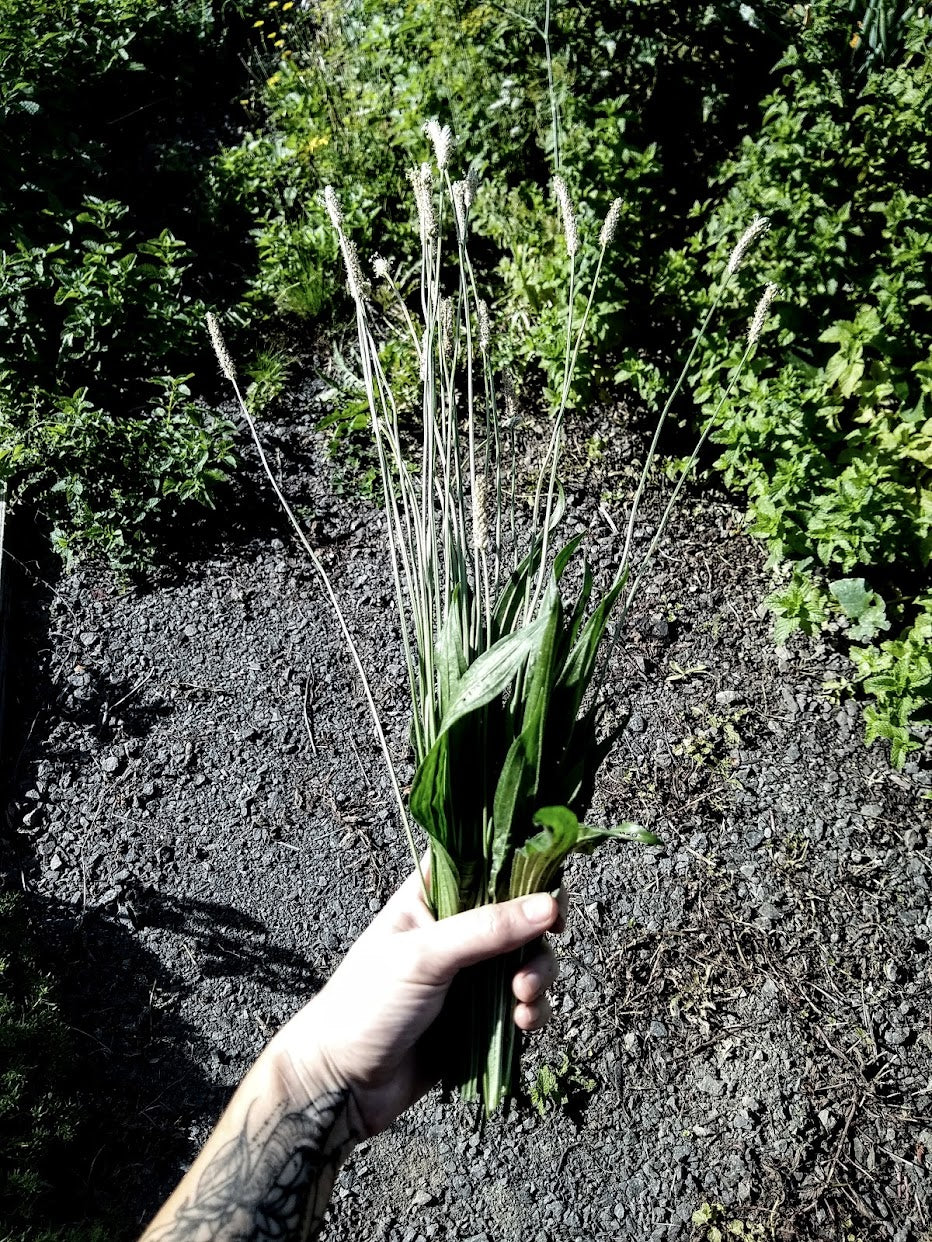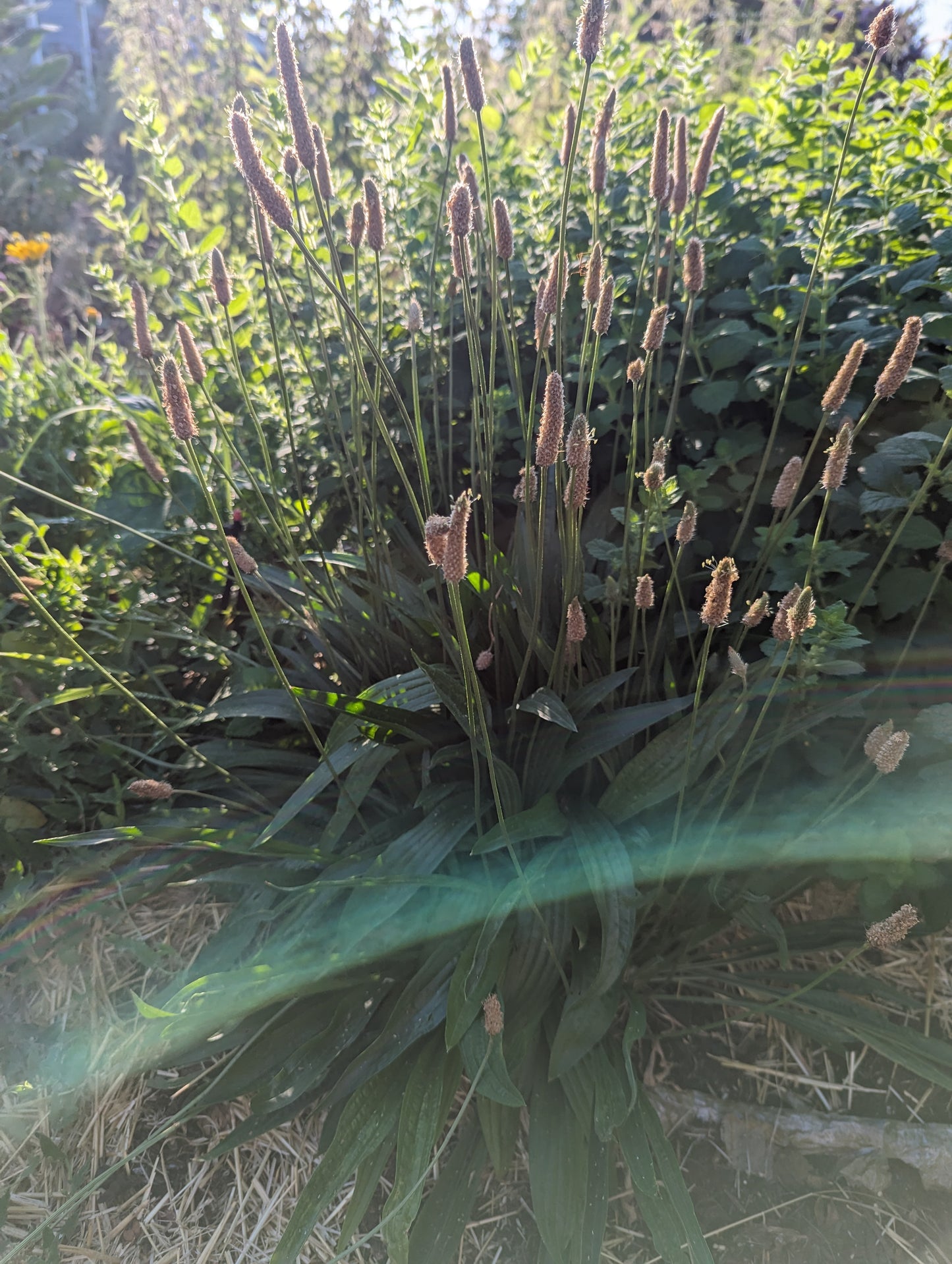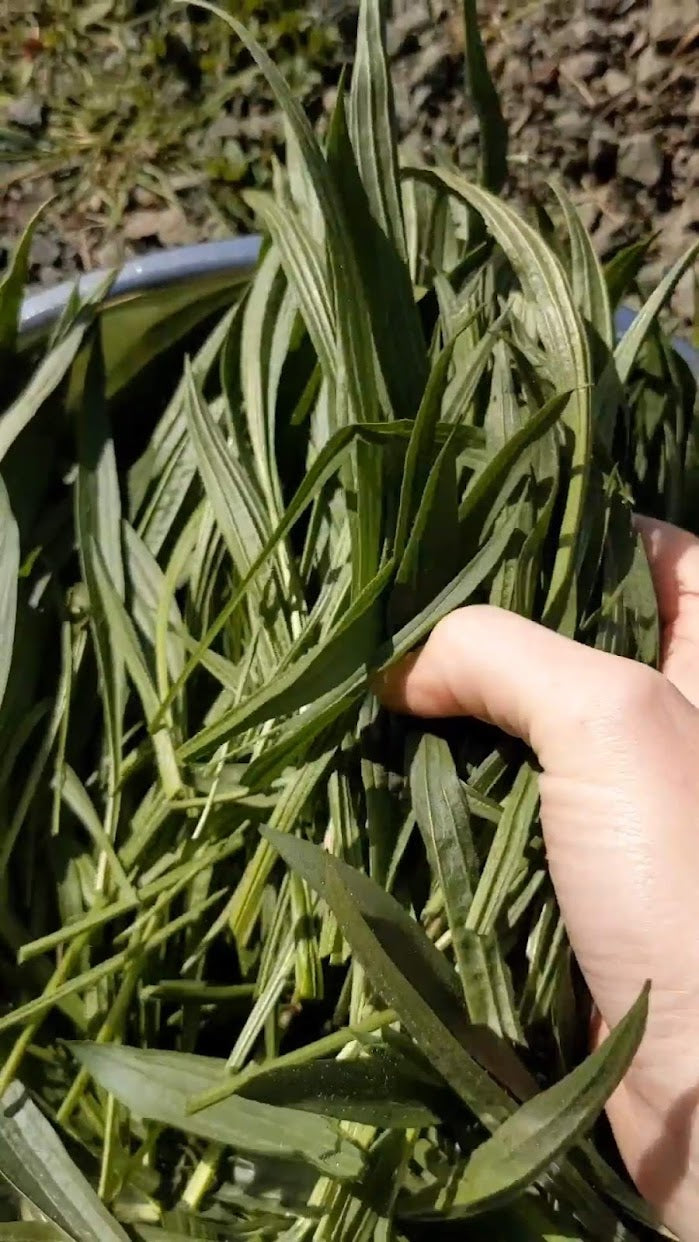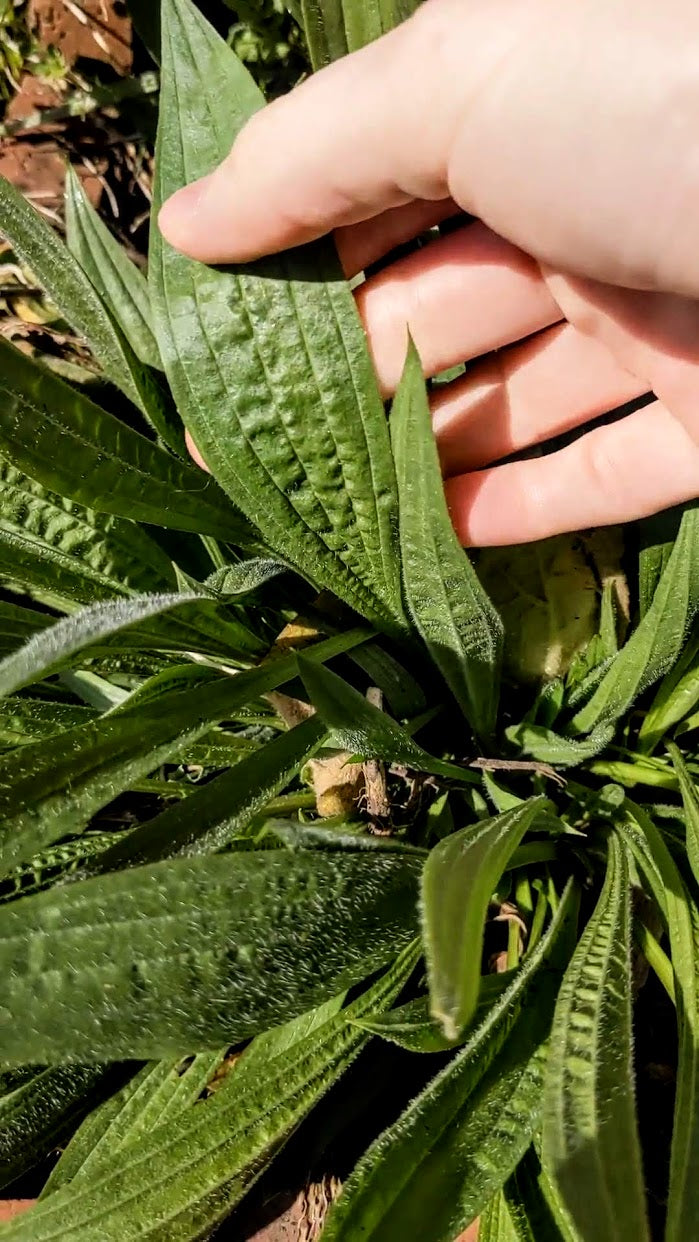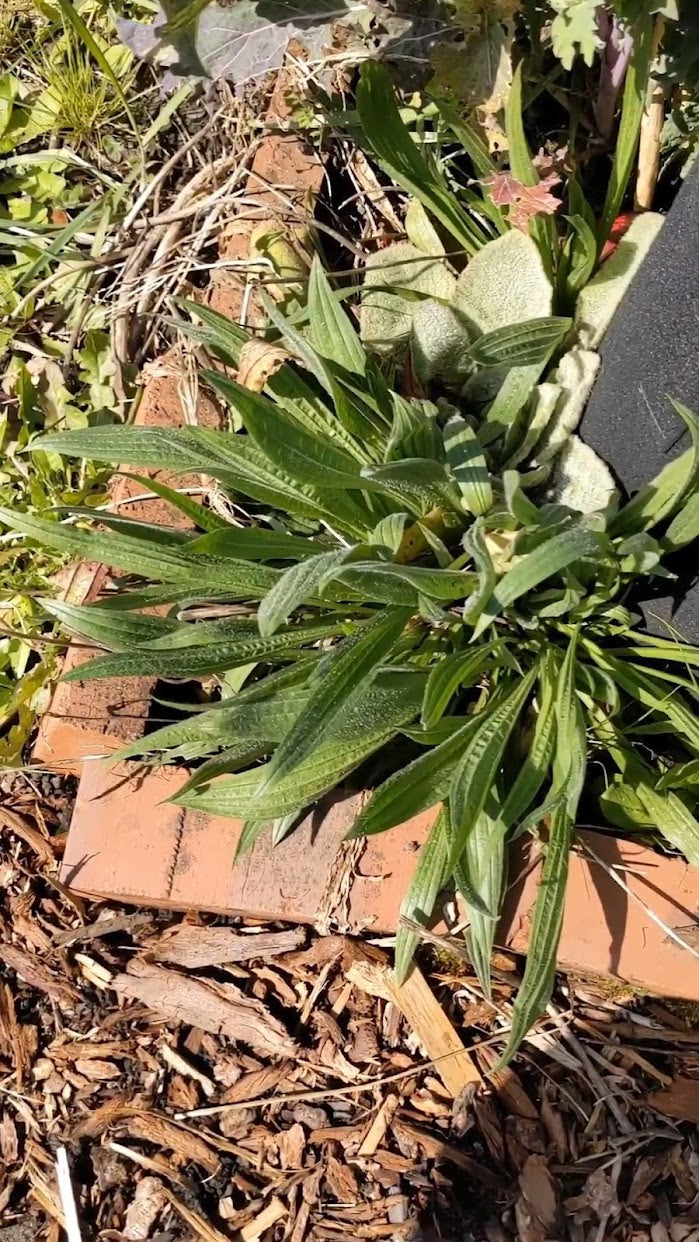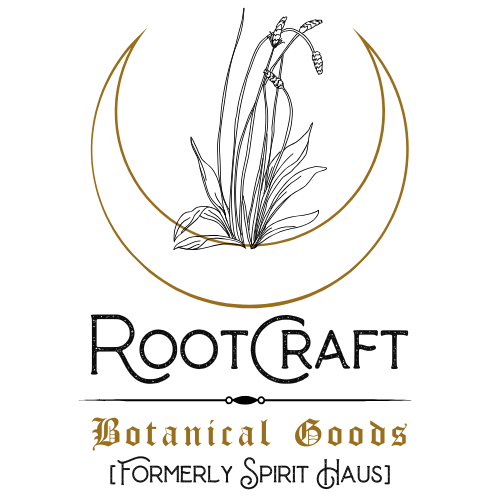Ribwort Plantain Seeds | Plantago Lanceolata
Ribwort Plantain Seeds | Plantago Lanceolata
Couldn't load pickup availability
Often called “nature’s bandaid” since it’s so easy to wrap around a finger, Plantain is one of the primary topical healing plants western herbalists will reach for. It grows abundantly all the way from spring until late summer.
As an edible weed, plantain has long been worked with for its gentle but reliable cooling and moistening properties in order to support the digestive, respiratory, and urinary tracts.
Indigenous populations called plantain “white man’s footprint” since it spread as aggressively across the US as colonization did.
Plantago is naturalized in most places and while it readily spreads, it is not reported as noxious or detrimental to ecosystems.
Approximately 50 seeds, harvested for 2025.
Grown using only compost, water, & organic fertilizer, our plants are never treated or sprayed with anything at all.
Lifecycle: Perennial
Zones: 3-10
Region: Native to Eurasia
Actions: Alterative, demulcent, vulnerary, expectorant, diuretic, anti-inflammatory, antiseptic.
Parts used: All above-ground parts
Planting: Direct sow seed on the surface of the soil in early spring while it's still cool out.
Spacing: 12"
Location: Plants thrive in sun or shade, moist or sodden soils
Germination: up to 6 weeks
Our Seeds
The majority of our seeds offered are saved from our small medicinal plant farm right here in the Cascade foothills of Oregon's Willamette Valley.
Our plants are grown only with water, compost, & organic fertilizer. Never sprayed with herbicides, pesticides, synthetic fertilizers, or anything else.
There are some seeds that we have not been able to harvest in abundance ourselves yet, so these are provided by a farm here in Oregon that is certified organic by the USDA and Oregon Tilth.
Important
Always check with local authorities (such as your county extension) to see if non-native plants are invasive or noxious in your region.
Noxious plants are illegal to grow and cannot be shipped across state borders. Invasive species should never be intentionally planted, but should be harvested from the wild instead.
They may hold medicinal value but they can destroy native ecosystems and habitats. There are likely less destructive alternatives with similar medicinal value that you can plant.
